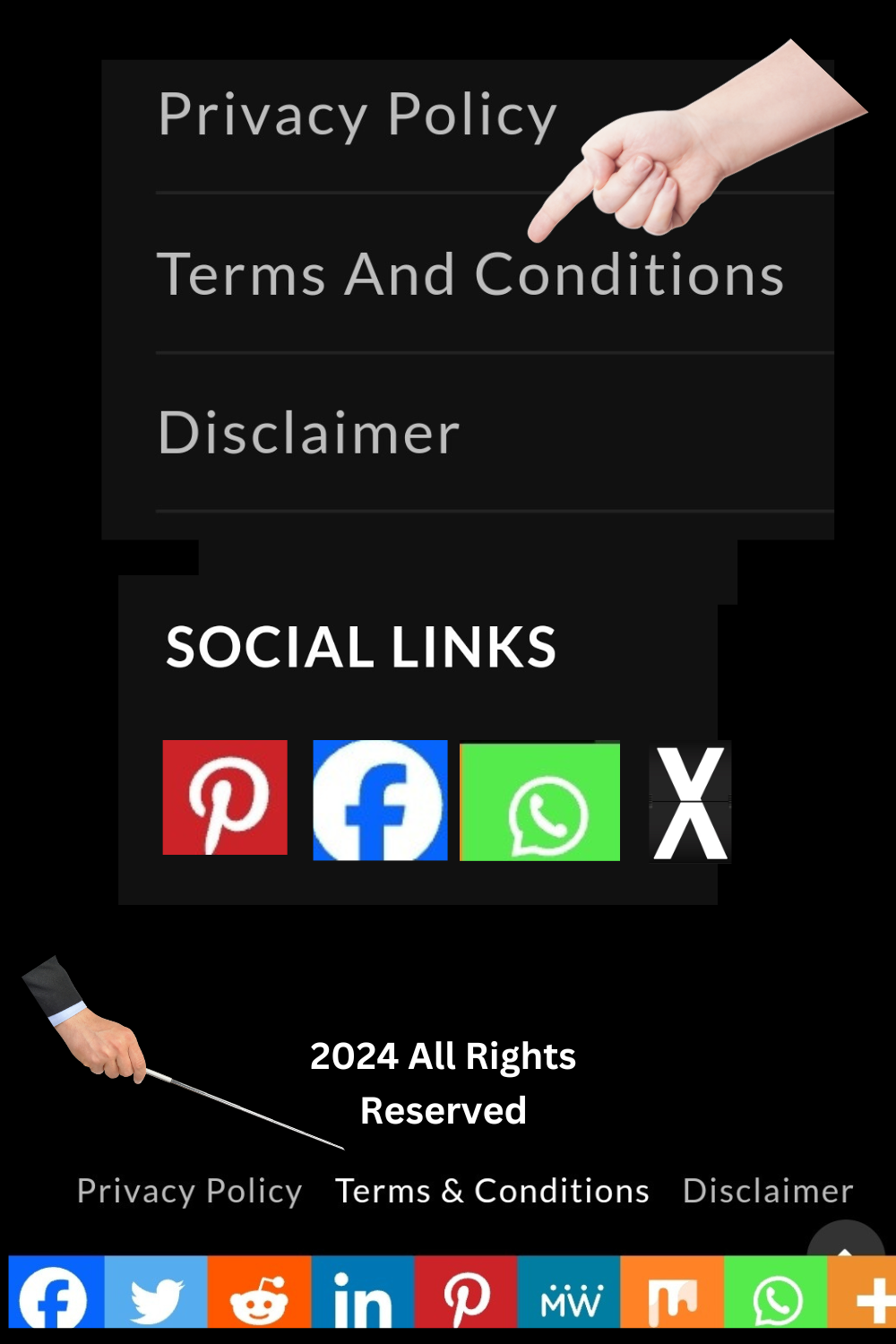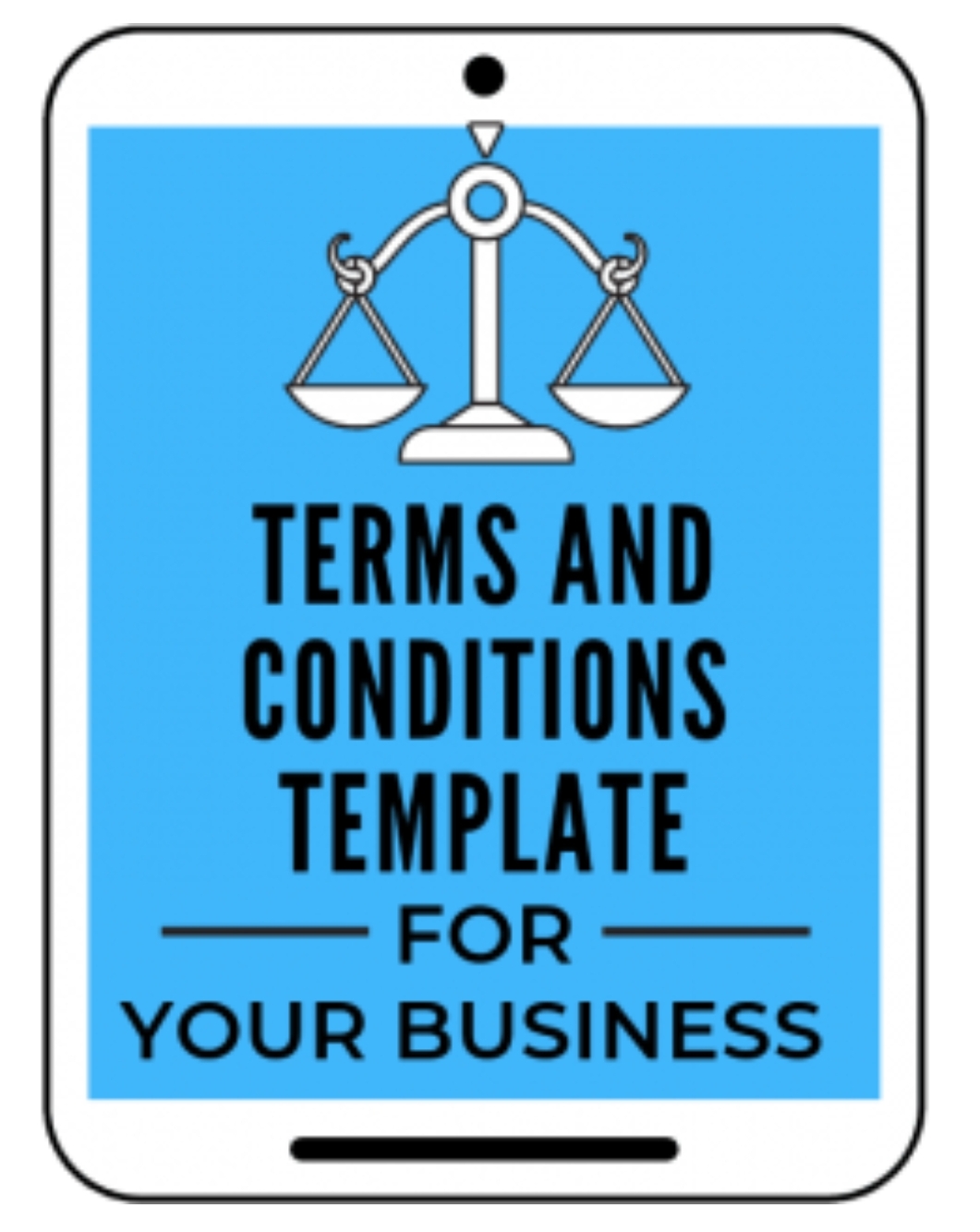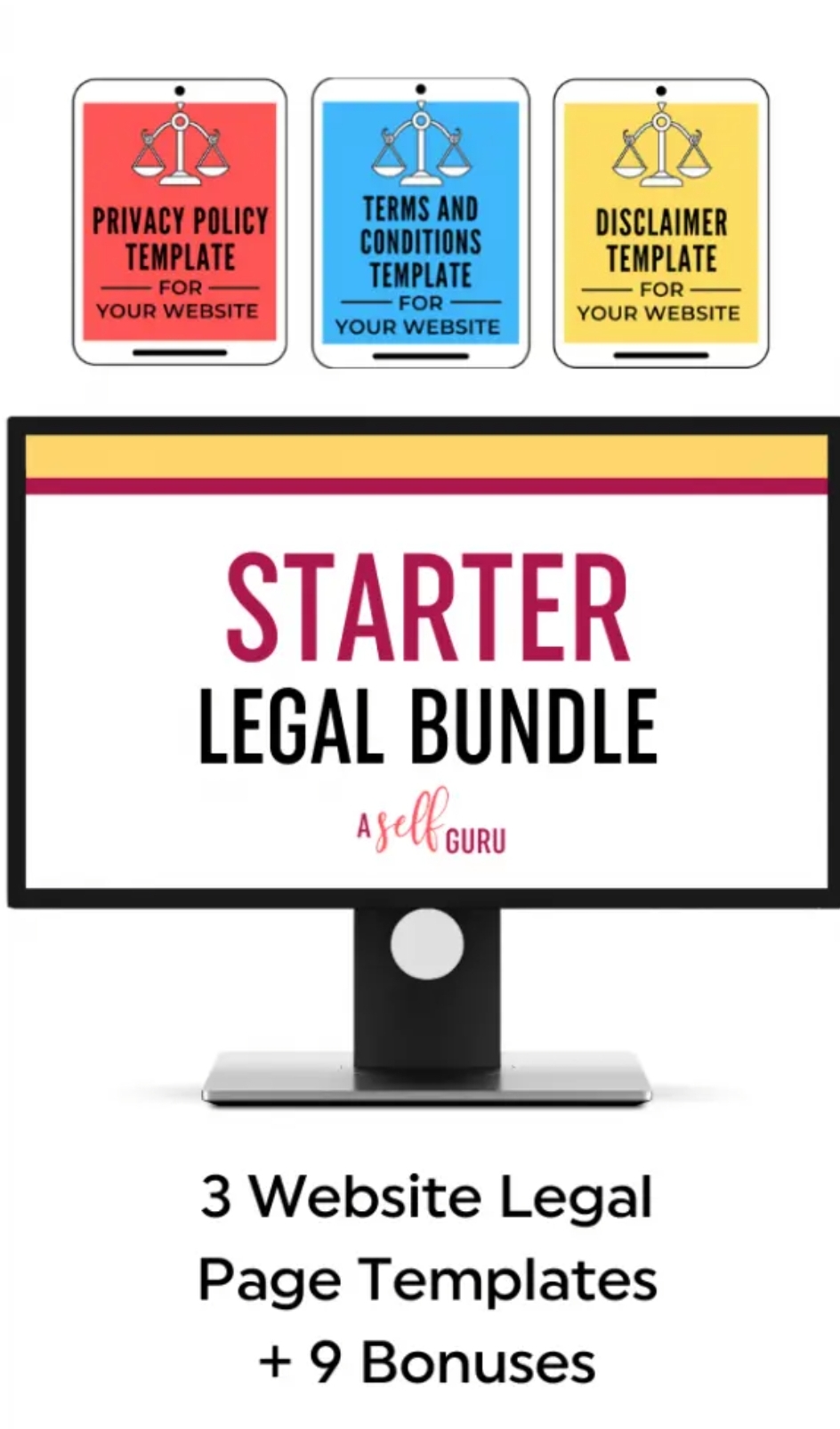HOW TO DO PODCAST How to do a Podcast may seem overwhelming just by thinking about…
Terms And Conditions For Websites
This post may contain affiliate links, which means we'll receive a commission if you purchase through our links at no extra cost to you. See our full disclosure for more information.
Terms And Conditions
Terms And Conditions For Websites
~ Required Agreement
Terms And Conditions For Websites is one of three documents websites must have to operate legally and comply with the law. There should also be a Privacy Policy and a Disclaimer on websites.
In addition, you should also have an affiliate disclosure at the beginning of each blog post before you place your first affiliate link.
In this blog post, we will dive a little deeper into the must-have Terms and Conditions Agreement, its purpose, the ramifications of not having one and its ideal location on your website

Terms And Conditions Agreement For Websites
The terms and conditions agreement for websites is an important document that ALL websites must have to be legally compliant.
Let’s get this out of the way first:
The following three agreements are the same and there is no legal difference between them.
▪︎ Terms Of Use
▪︎ Terms Of Service
▪︎ Terms And Conditions
This Agreement outlines the rules governing the website that you will create and it will keep you out of trouble.
This is a document that all websites are required to have by law

Although you can create one yourself, I do not recommend doing so unless you are a lawyer. It is a very detailed document. It should be thorough and unique to your site for your utmost protection.
I am not a lawyer
My website disclosures were prepared by attorney Amira Irfan, who is also an experienced blogger. I was relieved of worry and stress once they were done by her knowing that my websites were in compliance with the law and offered protection for me and users of my websites.
We will go over the importance of Terms and Conditions for websites and how you can have one done quickly, thoroughly and most cost-effectively.
If you are out of cash or just starting out there are plugins and templates that can cover you at the bare minimum until you can have an attorney prepare your website disclosures.
You already know that we like to keep you abreast of free resources
Keep in mind that free agreements are not as airtight as what will be provided for you by a licensed attorney, such as Amira Irfan, especially since she is also an experienced seven-figure blogger!
Although I’m all for free and I’ve said many times that “free is your friend”, the Terms And Conditions document for websites is very thorough and it contains legalese. It should be done the correct way from day one for your utmost protection and compliance with the law.
If you are well versed on legal agreements and their importance for websites you can skip to the end of this post to find out how you can get your hands on them for a much lower cost than what a retained attorney would charge
If you need more detailed information and why the heck are they so important then continue reading.
What Are Terms And Conditions?
Terms and Conditions are essentially the rules and guidelines that you have posted on your site to let the public know and be in agreement with before they use your site for any reason at all.
Legally Required
Simply put, your website is not in compliance with the law if it does not have this document. Your site could be shut down or worse yet, you could be SUED. It is a legal requirement for all websites and is typically displayed in the footer section of websites. You are leaving yourself wide open to being fined or sued if this is missing from your website.
The Provisions
Several key pieces of information are in a carefully crafted agreement.
Here They Are:
1) Limitation Of Liability
This provision lets your users know that there is a limit to your liability if they experience a problem on your site.
If a user can’t gain access to your site or to a product they bought on your site resulting in a monetary loss of funds to them, then you may not be held liable. Having this important provision in place can save you from being sued.
2) Privacy Statement
Let your users know you are only collecting personal information that is given to you by them and nothing else. You are not collecting any other personal information that they have not voluntarily given. You are not selling their info to another company.
You have collected their name, address, phone number, and credit card number because they have purchased a product from you. You have to charge them and then ship the item to them
Let your users know their information is safe with you. If you are selling their personal information, well then you must absolutely disclose that to them.
The Use Of Cookies
The use of “cookies” if applicable, must be disclosed on your website as well as the length of the cookie and why you are using it.
Include a small section on how you will protect their information too but also it is important to add that you cannot warrant the protection of their information. It’s important to say this in writing because let’s say your website is hacked or there is a breach beyond your control and several users’ important and personal information is now in the hands of hackers!
Now What?
By including the aforementioned short and to-the-point statement you are protecting yourself or essentially limiting your liability. Truthfully speaking, even with your best intentions you cannot 100% prevent anyone’s information from being hacked.
Also if you are affiliated with another site, you don’t want to be responsible if hacks or breaches occur on their end which resulted in the misuse of your users’ personal information.
3) Arbitration Clause
Let’s face it, we live in a sue-happy society and even with an airtight Privacy Policy, Terms & Conditions and a Disclaimer, sadly a client, customer, or user can still try to sue you over something they are displeased with. It’s irrelevant if the lawsuit has no merit and they will lose. What’s important is that you must maintain control over where the lawsuit will be tried. With that being said, let’s say your user lives in Australia while you live in the USA. To prevent traveling to Australia or Timbuktu for that matter, you must dictate where the case will be tried. Without the following provision, in a detailed Arbitration Clause, you could be bound to travel overseas or to some inconvenient place which could cost you many thousands of dollars.
Not only will you dictate where the case will be handled but you can dictate how and trust me, you do not want to go to court. Opting for arbitration speeds up the process which results in lowering the cost significantly. It eliminates the need for a jury as well. An arbitrator will be assigned to settle the case. Avoiding the court system will be beneficial to you on many levels and will be much more affordable than the alternative. What could take years to settle and many thousands of dollars in legal fees and traveling costs will now take months. The decision of the Arbitrator is binding. You can state your jurisdictional provision (where you want the case arbitrated) to be somewhere local and close in proximity to you.
4) Acceptance
Finally, you must include in your Terms and Conditions Agreement for websites that:
users must not use your site if they do not agree with your terms
Make it very clear, crystal clear in fact, that they can’t proceed to use your site unless they have accepted your terms and they are in agreement with them.
If you are writing your own Terms and Conditions (I don’t recommend this unless you are an Attorney) you must include the four aforementioned provisions amongst other things. The latter provision is typically written at the very end and is best typed in bold print just to emphasize its importance.
To be on the safe side, it may be best to have your document reviewed by an attorney if you’ve written it yourself. Again, I am not an attorney and I am not attempting to give you legal advice. I am sharing with you how I was advised to handle this on my websites.
Obtain Terms And Conditions For Websites Here

Terms & Conditions
Terms For Courses
Are You A Course Creator?
Courses Need Terms & Conditions
The Terms and Conditions For Courses document will protect you if someone orders your digital course and changed their mind or is displeased. They may request a refund or worse yet may even want to sue you.
Airtight Agreement
We all know that not all attorneys are created equally. Not all are well versed in the intricacies involved when preparing airtight disclosures, contracts and agreements for your blog or website. It may not be their area of expertise.
As a course creator, the last thing you want is to be sued when a properly constructed terms of service for courses could have offered you more protection.
Paying The Best Price
Please do your due diligence.
I have priced the required documents before with an attorney and they can be quite expensive especially since you may ultimately need several other documents in addition to the following must-have ones:
- Privacy Policy
- Terms & Conditions
- Disclaimer
Purchase Terms & Conditions Agreement For Courses Here
Attorney Amira offers various bundles which will cost less than purchasing each document or agreement individually.

Why Buy Amira’s Documents?
▪︎ The number one reason is her templates are thorough and include all the details to keep you in compliance and out of trouble. They will have details that other Privacy policies may lack. You simply have to fill in the highlighted areas with your unique information and delete info that does not pertain to your company or website.
▪︎ Secondly, as I stated before she is not only an attorney but an experienced blogger as well. You name it, she has seen it and she can attest to lawsuit horror stories that you definitely don’t want to experience.
It was a huge weight off my shoulders getting my website disclosures from her
▪︎ Thirdly, if the law changes she will have updates at no extra cost.
▪︎ Fourthly, the price of her templates is so much lower than the price charged by retained attorneys. She also offers bundles that will cost a whole lot less than purchasing individual documents.
▪︎ The fifth reason is just amazing:
She will offer you a way to recoup what you’ve paid to her many times over
Let me explain. She offers an affiliate program that pays 40% to you, the affiliate. So if you know of fellow bloggers, family, or friends who have a poorly constructed set of agreements or none at all and you’ve signed up with Amira’s affiliate program, you can refer them, earn a commission and promote it to your email list as well.
How awesome is that?
That’s not all, if you’re happy with your own disclosures or just can’t afford the proper ones just yet, she will still allow you into her affiliate program without having purchased any of her products and with little or no traffic!
This is a great opportunity and side hustle for newbie bloggers
A New Side Hustle
Start an additional income stream aka side hustle with Attorney Amira Irfan today. It’s free to sign up.
Free Agreements
We promised we’d let you know how you could get your hands on free disclosures and agreements for your website if you are low on cash. We understand that starting a blog comes with expenses that may not yet be in your budget. We’ll touch bases on 2 ways to obtain legal agreements for your website free of cost.
Free WordPress Plugin
Plugin For Disclaimer
A plugin is a software that adds specific functions or features to programs or websites without having to code. Good plugins can be a godsend. However, a poorly built one can cause problems on your website, hinder its performance and may not offer continued support.
Do your research on plugins
Although some plugins are essential for the proper functioning of your website, contrarily some are problematic. They should all be used with caution because too many may slow down your site. Also not all plugins play nicely with each other in the sandbox so there may be some incompatibility issues.
That being said, there is a free plugin called:
“Complianz”
The plugin above can be used to prepare Terms and Conditions.
You Can Also Prepare Free Website Agreements Here
At the website above, you can create Agreements and Disclaimers free of cost for your website.
Keep in mind that documents prepared by plugins or obtained from websites may not be unique to your site and so they may not be as thorough as one that is prepared specifically for you by an Attorney.
If you have doubts about Amira’s prices, I welcome you to ask your attorney to price these documents so you can compare costs.
In Conclusion
To recap, make sure you are blogging legally with the proper disclosures and agreements.
Check out Attorney Amira’s other contracts such as freelance contracts, independent contractor contracts, LLC’s and so much more especially if you are a course creator or business owner.
Research plugins before downloading and using them to avoid risks.
Sharing is caring, please pin and share this post if you got valuable information from it.
As always, cheers to you on your blogging journey and for legally protecting your website!
Website Documents
■ Terms & Conditions (For Websites)
■ Terms & Conditions (For Courses)
■ ADA
Related Reading





